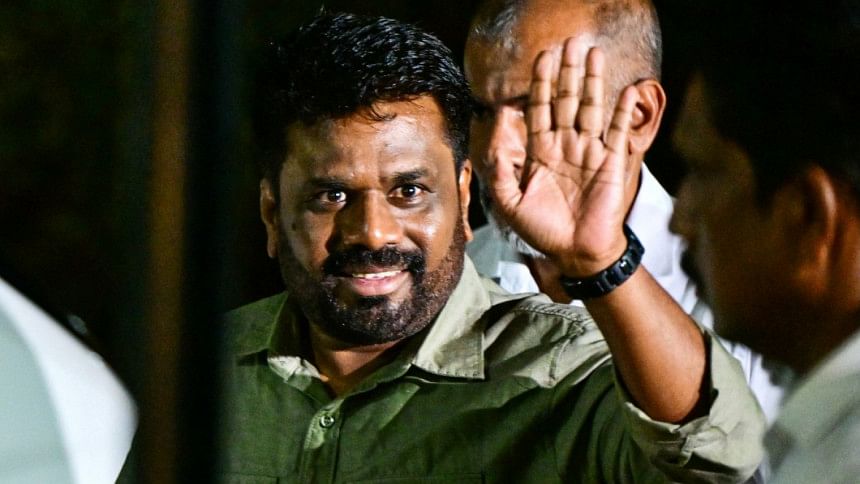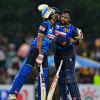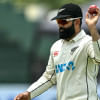Anura Kumara Dissanayake takes oath as Sri Lanka's president

Anura Kumara Dissanayake, a Marxist-leaning politician with no political lineage, took oath as Sri Lanka's president on Monday, a day after he won a comprehensive victory in the debt-ridden South Asian country's presidential election.
Sri Lanka's president-elect breaks a tradition of political lineage
Anura Kumara Dissanayake may lack the political lineage of some of his rivals, but his leftist anti-poverty policies and pledge to fight corruption handed him victory on Sunday in Sri Lanka's presidential election.
Although his Janatha Vimukthi Peremuna (JVP) party has just three seats in parliament, the 55-year-old candidate was boosted by his promises of tough anti-corruption measures and bigger welfare schemes.
Dissanayake, popularly known as AKD, polled 1.27 million votes more than nearest rival and main opposition leader Sajith Premadasa. Incumbent President Ranil Wickremesinghe finished third.
Premadasa is the son of former President Ranasinghe Premadasa, who was assassinated in office. Wickremesinghe's uncle J R Jayewardene was a former president and prime minister, and Namal Rajapaksa, the eldest son of two-time president Mahinda Rajapaksa, was also one of the 38 candidates in the fray.
"There are people who think their family power will win this election but on Sept. 21, that family power, financial power, media power and state power will be defeated by people's power," Dissanayake said ahead of Saturday's election. He will take oath early on Monday.
Dissanayake ran as candidate for the National People's Power (NPP) alliance, which includes his JVP that traditionally championed Marxist economic policies centered on protectionism and state intervention.
In recent years the party has taken more centrist positions.
Dissanayake drew big crowds at election rallies, calling on Sri Lankans to leave behind the suffering of a deep economic crisis.
"This vote was against corruption and mismanagement. People see transparency and efficiency in him when it comes to governance," said Thirangana Weerasinghe, 28, a businessman.
Dissanayake, who comes from a small farmer household in the southern city of Thambuttegama and is a physical science graduate, presented himself during the campaign as the candidate of change, promising to dissolve parliament within about 45 days of coming to power and to seek a fresh mandate in the general elections for his policies.
"We are likely to see another election in the next couple of months," said Bhavani Fonseka, senior researcher at Colombo's Centre for Policy Alternatives.
"We have to see whether he decides to stay with this prime minister and cabinet, appoints his own or a caretaker government."
Dissanayake's manifesto plans, which include reworking a debt restructuring programme at the core of the International Monetary Fund's $2.9 billion bailout and a pledge to slash taxes that would impact fiscal targets raised worries among investors and market participants about his economic policies.
But during campaign speeches he took a more conciliatory approach, saying any changes would be undertaken in consultation with the IMF and that he is committed to ensuring repayment of debt.
Dissanayake's JVP led two failed insurrections - in 1971 and 1988 - against elected governments that led to deaths of thousands as security forces crushed the rebellions.
The party has since embraced mainstream politics and Dissanayake, who was not a leader at the time, has not commented on the insurrections in recent years.

 For all latest news, follow The Daily Star's Google News channel.
For all latest news, follow The Daily Star's Google News channel. 








Comments